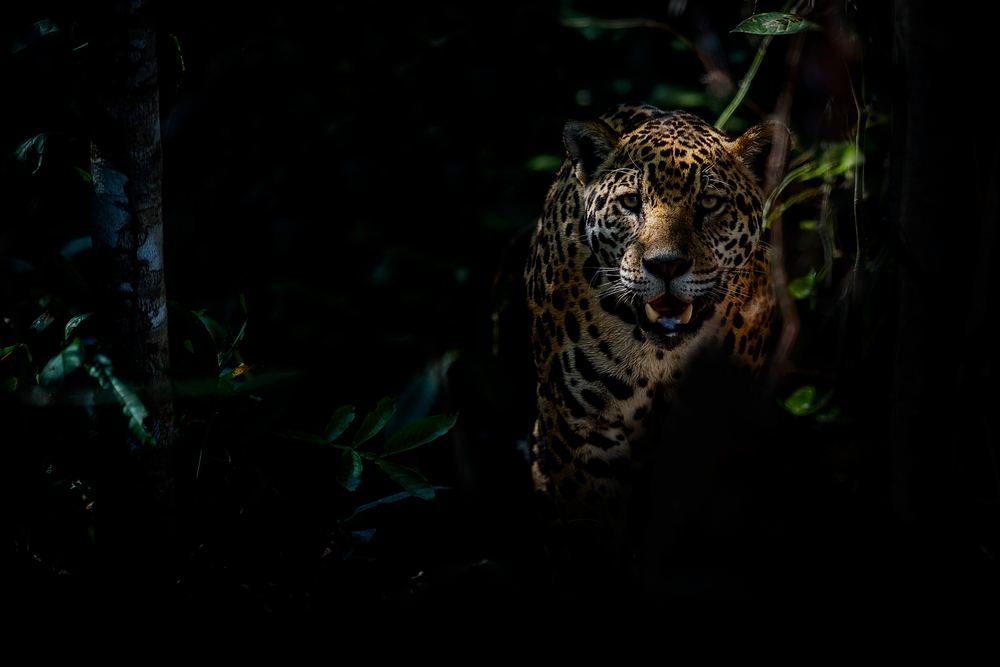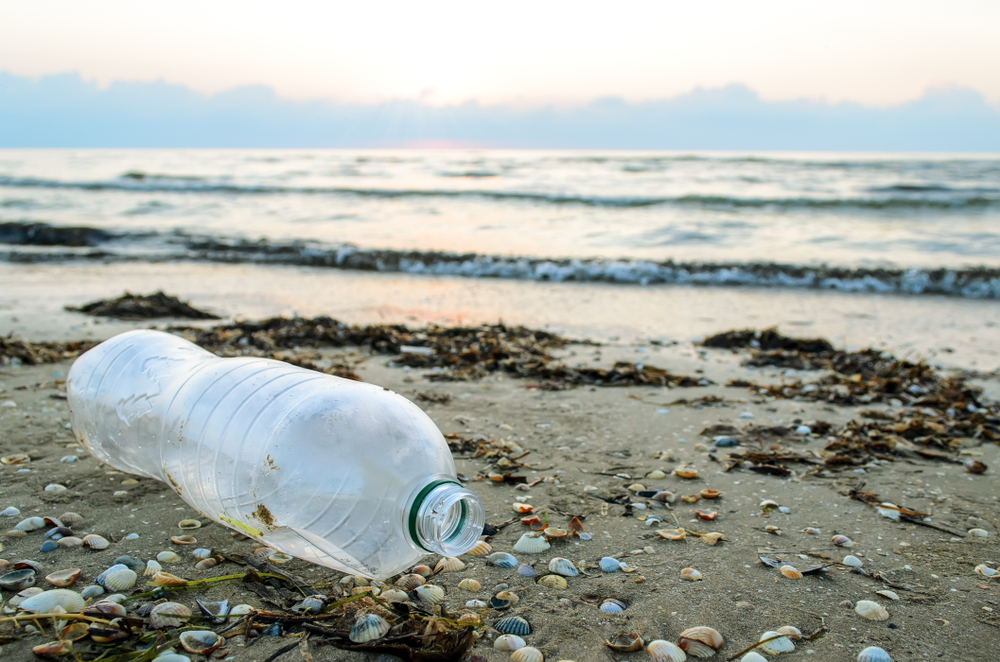Coexisting with nature
Wild animals are at risk in many places throughout the world. Their habitats are shrinking due to expanding human habitation, agriculture, mining, and industrialisation. Wageningen Scientists are conducting field research into solutions how humans and animals can live better with each other. They conclude that we can conserve nature to a much greater extent if we let go of unlimited economic growth. How do you think we can best protect nature?
“Within international environmental conservation, we’ve seen a huge wave of poaching, violence, and militarisation in recent years. For example, in African nature reserves, but this also happens in Brazil, where people who want to protect the Amazon are murdered. This is a very depressing development,” says Bram Büscher, professor of Development Sociology. At the moment, 17% of the planet is protected in nature reserves. However, many of these parks and other natural areas suffer from human activities and the effects of climate change. Going against the continued stream of bad news, Bram Büscher and colleagues decided to positively approach the challenges to environmental conservation in 2016. Together with his colleague Robert Fletcher he developed a broader vision for environmental conservation. Their book The Conservation Revolution will be published in February.
Conservation and loss
There are major heated debates taking place regarding the course of environmental conservation. For example, biologist E.O. Wilson, believes that half of the Earth must consist of unspoilt natural areas, in order to protect the foundations of life on the planet. In contrast, Büscher believes that we should ultimately move away from protected nature reserves. “Environmental conservation was created as a response to the destruction of nature and the environment. Particularly in the last 30 years, many protected nature reserves have been added to the list. The more nature we lose, the more nature we try to protect,” says Büscher.
“This is the first time that we have taken such a broad view of environmental conservation in connection with the role of nature in economic development. We bring many dimensions together.”
Unfortunately this does not end the loss of biodiversity. As such, the professor is advocating a different approach. “We need to move towards a promoted rather than protected nature, where people live alongside nature in a better way. We call this convivial conservation.” Convivial comes from the Latin “con vivire”; the need, according to Büscher, for humans to coexist with all life on earth.
Jaguars and bears
In order to see how this coexistence can take shape in practice, field research started last year into the relationships between humans and predators in both global north and global south contexts. In the Atlantic forest in Brazil, where agriculture and other land-intensive forms of development continue to expand, a postdoctoral researcher is currently looking at how to restore migration routes for jaguars. “This is socio-scientific investigation into what people need in order to want to – and be courageous enough to – live alongside the jaguar,” explains Büscher.

Researchers are looking at how to restore migration routes for jaguars in the Atlantic forest in Brazil
Similar research is taking place in Finland, where hunters and livestock farmers who settle in and around the forests struggle with the wolves that roam there. Other researchers are studying the relationship between humans and grizzly bear reintroduction in the American state of California, and the relationship between lions and humans in Tanzania.
Impact of consumption patterns
Worldwide, a better alliance between humans and wild nature is needed if we are to maintain a sustainable balance of life. “Take a fundamentally different infrastructure for urban areas for example, so that wild animals can also live and migrate there. Wild nature can be embedded into our living environment,” says Büscher. Tourism to more untouched natural areas should be reduced in the future. In addition, the professor proposes introducing a basic income for people who live together with wild nature and help conserve it.
Furthermore, Büscher and his colleagues advocate the study of “conservation impact chains” which can be used to identify the impact of consumption and lifestyle on ecosystems and biodiversity. “This can show the influence of consumption patterns on bees in Europe or lions in Africa, on the environment, and on the richer and poorer people in the areas concerned,” explains Büscher. This idea is already being explored inside and outside of Wageningen University, together with international nature organisations and knowledge institutes.

Büscher and his colleagues advocate the study of “conservation impact chains” which can be used to identify the impact of consumption and lifestyle on ecosystems and biodiversity
Unsustainable
Intensive agriculture, mining, and urbanisation have too negative an impact on nature. It causes ecosystems and biodiversity to decline rapidly. “Nature cannot evolve fast enough to adapt. Our economic system, based on unlimited growth, is unsustainable,” says Büscher.
The IPBES report by the UN Panel on Biodiversity, published earlier this year, draws the same conclusion. The report was signed by nearly all UN countries. Büscher: “Technological solutions and efficiency sometimes provide a little respite, but the space it creates is immediately filled by further growth. Let’s use the electric car as an example. If we all switch from driving powered by fossil fuels to electricity, but have 25 percent more cars on the road as a result, the overall environmental footprint will still increase.”

Researchers are studying the relationship between humans and grizzly bears in the reintroduction of these bears into the American state of California
Breakthrough
“Humankind is unable to see the full scope of the consequences of its actions,” emphasises the professor. “We are playing with the balance of life. It is time for deep reflection on nature conservation and how political and economic systems can contribute to it.” Büscher and his colleagues in the Sociology of Development and Change group are working with the Netherlands Environmental Assessment Agency (PBL) on future scenarios for environmental conservation in the Netherlands, in which economic growth is not a determining factor.
Büscher notes that their vision for environmental conservation is attracting a great deal of national and international interest from nature organisations, scientists, and governments. “People are open to a positive story with ideas on how things can work differently. Besides, it’s a scientific breakthrough. This is the first time that we have taken such a broad view of environmental conservation in connection with the role of nature in economic development. We bring many dimensions together.”
Read more:
- Platform for Convivial Conservation and the project website of the field research into the relationships between humans and predators
- Short video about convivial conservation in English and Spanish
- About the loss of biodiversity and the required changes according to the UN panel IPBES
- Read this article in Dutch


Tourism to more untouched natural areas should be reduced in the future.
Oplossingen moeten realistisch zijn, dat ie deze niet.
Toerisme is noodzakelijk als inkomstenbron voor het behoud van natuur. Door natuur als “consumptiegoed” te gebruiken ontstaat ook de noodzakelijke prikkel om hem te behouden.
In addition, the professor proposes introducing a basic income for people who live together with nature and help conserve it.
Ook lekker makkelijk om te zeggen, het wordt pas interessant en relevant als je aangeeft en probeert te bewijzen met welke stimulans dat betaald gaat worden. Dat is wetenschap!
De belangrijkste oplossing wordt niet genoemd: het (drastisch) tegengaan van verdere groei van de wereldbevolking door afschaffing stimuleringen (geen kinderbijslag), beter onderwijs en afhankelijk stellen ontwikkelingshulp aan maatregelen die geboortebeperking in de hand werken. Dat taboe moet hoognodig doorbroken worden!
http://www.envirosociety.org/2016/04/why-wont-overpopulation-finally-go-away/
Poverty in developing countries like Africa is what fuels biodiversity loss. Commitment and government policy alone will not solve the problem but with education and more of it, they trend can be reverse and conservation can then thrive in this endemic areas.
My grandparents told me that in their childhood that man had once lived in close proximity with wild animals in villages, but in our day all these animals are gone.
I believe we can reverse the trend and conserve the few biodiversity that is left.